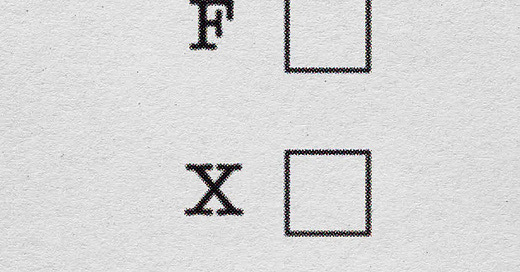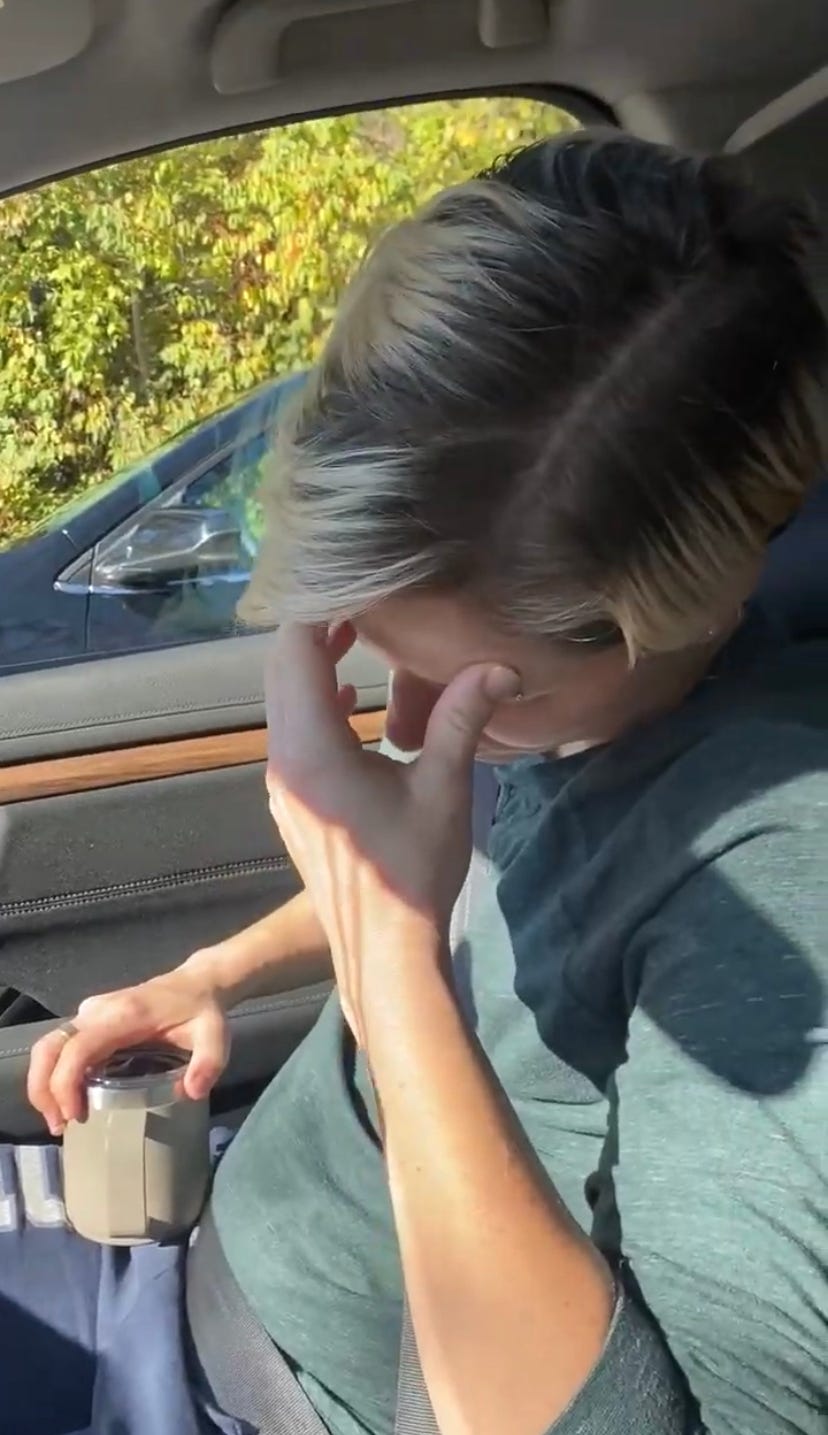Since I started blogging more the last couple of months, one thing quickly became clear. I wanted to start documenting different aspects of one transgender person’s story in long form. This intention intensified as we now face the present and upcoming political climate. Tonight, I am documenting one aspect of my story: a legal gender transition that went nowhere.
In 2023, a year after the Department of State began offering a gender-neutral marker option, I decided to change mine. The Department of State’s definition of the X gender marker is, “unspecified or another gender identity” which can protect personal privacy, or at least that was the intention then. So, in 2023, I had the ease of changing my gender marker without have to go through bureaucratic hoops or sharing sensitive medical information to obtain accurate and affirming records for federal documents. It was accessible and possible, just as it should be. This was the beginning of my legal transition, a change only known to my partner and a few other loved ones. The paperwork was a breeze. The return of an updated passport with the correct gender marker came back quickly, along with my outdated and invalid passport. And we went on with our lives.
That is, until the Trump / Vance presidential ticket won. They promise to revoke the Department of State and Social Security Administration’s policies, providing the gender-neutral marker as an option on one’s passport and other certain federal documents. Just after the election, I made the decision to reverse my gender marker. It’s important to keep in mind that a decision like this is personal. It is up to each person how they would like to go about this, or how they feel they need to go about this I should add. Each person ought to assess their situation and go with what they feel is best for them. For me, I thought about a few personal factors. First, my sex assigned at birth remains in other legal documents whereas my then-new-now-old passport had the gender-neutral “X” marker. I also have not changed my name legally, nor do I wish to at this time. I had been at the very beginning of a legal transition. I needed time to figure out how I wanted to go about that aspect with my identity. So, with little changes done legally since socially and medically transitioning, I was fixated on my passport as a legal outlier.
For me, the “X” on my passport presented a sense of additional vulnerabilities. Since I am neither woman or man, I felt as though the “X” marker placed a big-red-strobe-blinking target on my back. I didn’t feel it was wise for me to have an “X” in my passport anymore. Also, LGBTQ+ attorneys have provided gentle but firm advice for folks to consider consistency of one’s legal information across all documents. So, with that, I did what I felt was best. Moreover, while the “X” gender marker is important and affirms one’s identity like mine, traveling with the “X” gender marker may pose as a limitation rather than a freedom. Today, the world has been seeing a gradual but apparent shift to right-leaning regimes. Based on my own judgment of the current climate, I’d rather leave my possibilities open, at the expense of legal inaccuracy.
A couple days ago, my new passport came back, indicating my sex assigned at birth. The decision I made was not an easy one but I stand by it.
At the end of the day, my legal identity is a lie, but my existence is not. I’m holding onto that.
—
If you’re in a position to consider your situation, I offer a resource here as a start. Also, I’m going to share a few organizations that can assist you, however you choose to go about your situation (see below). If this does not apply to you personally, perhaps it would be helpful to share this with someone you care about who may be going through this. With that though, I think it’s imperative that you ask them first if it’s okay for you to share resources for their consideration, emphasizing that you’re not encouraging them to make a certain decision. You just want them to know you support them and want them to have the ease of finding resources or information that may be helpful were they to explore their options.
I pulled this useful information from Them.
Resources and organizations that can help with gender marker / name changes
There are a number of organizations that can provide advice and legal support as you change your gender marker and/or name on official documents. In some cases, organizations may also provide financial support, as the process can be both time-consuming and expensive depending on where you live and which documents you are updating. To help get you started, check out the following organizations:
Advocates for Trans Equality. A4TE offers a step-by-step guide on gender and name change policies. Additionally, A4TE’s Name Change Project provides free legal services to low-income trans, nonbinary and GNC folks.
Transgender Law Center. TLC offers a free legal Helpdesk in English and Spanish to help walk you through the basics of identity document changes. However, the help desk doesn’t provide individualized legal advice or representation.
Trans Lifeline. The ID Change Library offers a searchable database on ID changes and includes both local and federal policy information and application fees. There is also information on Tribal IDs, military, employment and immigration documents, as well as resources for those with criminal records. Additionally, Trans Lifeline offers micro-grants to trans and non-binary people to update documentation. (According to Trans Lifeline, micro-grants are currently paused but may reopen in the future.)
Finally, it’s also worth seeing what resources are available in your area — LGBTQ centers, local PFLAG or Pride groups, and other community-led initiatives may provide free workshops, financial help, and other resources for ID changes.
Rolling back legally, rolling forward authentically.
-s.g.
No one edits my writing. I’m no expert in language use and word order. I ask for your grace if you stumble across any errors or mistakes in my written pieces. The same goes for my voice recording.You may notice in some mispronunciations that I am saying the word as it looks rather than by its correct pronunciation. This is typical of a deaf person who voices for themself. On both counts, consider it part of my art; an imperfect expression plucked from my heart and placed onto your screen. Consensual hugs.





